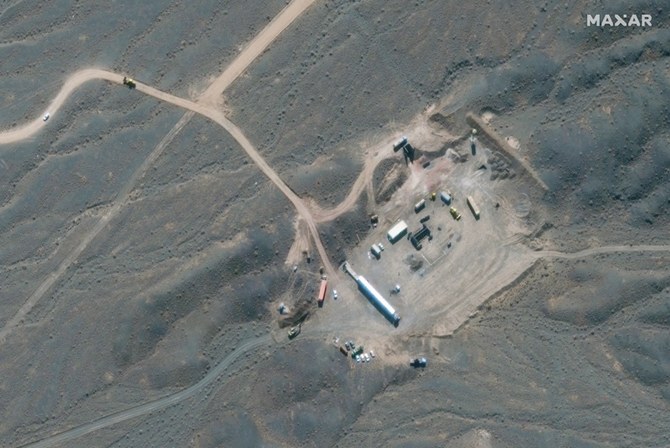VIENNA: Iran is rapidly expanding its ability to enrich uranium with advanced centrifuges at its underground plant at Natanz and now intends to go further than previously planned, a confidential UN nuclear watchdog report seen by Reuters showed on Monday.
While indirect talks between Iran and the United States on reviving the 2015 Iran nuclear deal have stalled, Tehran has brought onstream an ever larger number of advanced centrifuges the deal bans it from using to produce enriched uranium.
These machines are far more efficient than the first-generation IR-1, the only centrifuge that the deal lets Iran use to grow its stock of enriched uranium. Iran has been adding them particularly at two underground sites at Natanz and Fordow that may be designed to withstand potential aerial bombardment.
The third of three cascades, or clusters, of advanced IR-6 centrifuges recently installed at the underground Fuel Enrichment Plant (FEP) at Natanz has now come onstream, said the International Atomic Energy Agency report to member states. Diplomats say the IR-6 is Iran’s most advanced centrifuge.
Opinion
This section contains relevant reference points, placed in (Opinion field)
Iran has also quickly completed the installation of seven cascades that were either not finished or at a very early stage of installation on Aug. 31, Monday’s ad hoc report showed. End-August marked the last visit by inspectors mentioned in the IAEA’s most recent quarterly report.
Those seven cascades, one of IR-4 centrifuges and six of IR-2m machines, were fully installed but not yet enriching, Monday’s report said.
Iran has also informed the IAEA it plans to add an extra three cascades of IR-2m machines at the FEP, on top of the 12 already announced and now installed, the report showed.
Of those three extra IR-2m cascades, installation has already started on two of them, the report said.
The report also showed that all the centrifuges enriching at Natanz were still producing uranium hexafluoride (UF6) gas enriched to up to 5 percent but now they were being fed with natural UF6. That contrasted to the quarterly report issued in September that said on Aug. 31 the centrifuges were being fed with UF6 enriched to up to 2 percent. It did not explain the change.
In 2018, then-President Donald Trump pulled the United States out of the Iran deal and re-imposed sanctions against Iran that the deal had lifted. Iran responded by breaching the restrictions on its nuclear activities imposed by the deal.
If the deal is revived Iran will have to put its advanced centrifuges into storage, diplomats say.



















